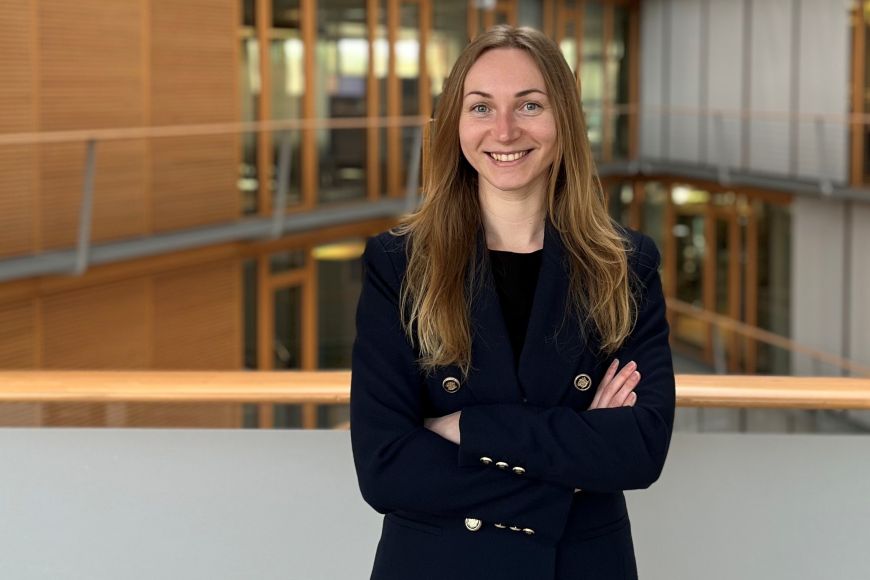As early as July, the first students of Masaryk University will be able to go for a two-month to one-year placement, for example to the US, Australia, Chile, Japan, Indonesia or anywhere else in the world. This will allow them to participate in a new Erasmus+ exchange programme outside Europe. The first round of applications closes on April 30, and further applications will always be submitted by the end of July, October, January and April. The selection procedure, which will open every three months will, provide students with greater flexibility in planning placements and make it easier to combine a foreign stay with study at Masaryk University.
“Erasmus+ is the most widely used exchange programme at Masaryk University - we fund 80 percent of study trips and placements. Last year alone, we paid out almost 70 million crowns from Erasmus on scholarships. We are therefore very pleased that the programme will be expanded to include placements outside Europe. I believe that this is a very interesting opportunity for our students to gain experience in prestigious international institutions and that such placements will help them to successfully launch their careers immediately after completing their studies. Personally, I look forward to seeing where the first candidates go and what their placements will be,” said Petr Suchý, Vice-rector for Internalisation and External Relations of Masaryk University.
Graduates will also be eligible for placements
In addition to students, graduates can also go on placements - but they have to apply at a time when they are actively studying. The application is submitted university-wide at the Masaryk University Centre for International Cooperation, which on the basis of cover letters and other compulsory attachments, selects successful candidates. They then receive a scholarship of 700 euros per month (about 17.5 thousand crowns).
“We anticipate strong interest in the placements from all ten faculties. However, we have a more limited budget from the European Union for this activity, so we will be able to finance only a few dozen of placements a year compared to those in Europe, of which we have around 250 annually. However, we still believe that students will apply and that they will have very interesting stories and experiences that will attract future employers,” said Violeta Osouchová, director of Masaryk University’s Centre for International Cooperation.
In order to take up a placement, the students must successfully go through the selection process of the Masaryk University Centre for international Cooperation. Before applying, students have to find an institution to work in full-time (at least 35 hours a week) and agree on the exact content of the placement related to the field of study and other details. Students also have to discuss the placement in advance with the responsible person at the department, because the application includes a work plan for the placement internship signed by the student, the foreign institution and the responsible person at the department.
“Students should start looking for a placement internship in time and ideally at least two months before the selection procedure - finding a suitable institution will take some time, as well as communication with the department and processing the necessary documents. If students go through the selection procedure, we certainly recommend that they address visas and accommodation in time,” advises the head of the Mobility Department at the CZS, Jarmila Strýčková, who is in charge of the entire selection and administrative process of placements both within and outside Europe.
Placements help students launch their careers
Foreign placements are a great opportunity for students and fresh graduates to gain useful and interesting experience. For example, a foreign placement helped to start the career of graduate in public economics and international relations Pavla Kolářová, who is currently working at the European Investment Bank, where she helps with start-up financing. She went on an internship to Luxembourg right after her studies and remained there.
“I had always liked the idea of working abroad, so I went to Luxembourg, where the European Parliament has one of its three sites, for a five-month placement right after my state exams. I liked it very much, so after the placement I started working, first at the Court of Justice of the European Union and then again in the European Parliament. But then I was tempted by work in my original field of finance, so I went to the European Investment Bank. I enjoy my new work a lot – simply said I found myself in it. I am very glad that Masaryk University offers students the opportunity to gain practice abroad while studying and I am very pleased that students can go on a placement outside Europe. I would be attracted to such an opportunity and I would certainly consider a placement in Australia, Vietnam, Hong Kong or South Korea,” says graduate Pavla Kolářová.

The Erasmus+ programme is becoming more popular
The Erasmus+ exchange programme has been operating at Masaryk University for more than 25 years, and over 17,000 students have taken part in it, and more than 9,000 students have arrived, coming in the opposite direction. The most popular countries where students head via Erasmus+ are heading are Germany, Spain, France, Italy, Great Britain and Portugal, but thanks to the Erasmus+ ICM programme they also study in more exotic countries, such as Ethiopia, Israel or Canada.
There is increasing interest among students in Erasmus+ placements - and as Vice-Rector Petr Suchý said in an interview for the Universitas magazine, Erasmus has become increasingly prestigious. For example, last year, students submitted over 1,400 applications for the February round for study placements in Europe, and 300 students were unsuccessful. Likewise, students have been very interested in placements in Europe in recent years and only last year MU financed a total of 303 of these.
Students have to take much more care over their cover letters and the selection procedure than ten years ago, when interest was lower, and the scholarships for Erasmus+ placements were won by most students who submitted applications.
